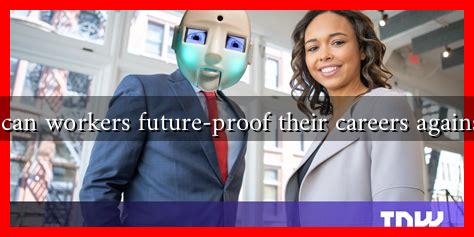-
Table of Contents
How Can Workers Future-Proof Their Careers Against AI?
As artificial intelligence (AI) continues to evolve and permeate various industries, the question of job security looms large for many workers. The rapid advancement of AI technologies has the potential to automate tasks traditionally performed by humans, leading to concerns about job displacement. However, rather than succumbing to fear, workers can take proactive steps to future-proof their careers against the rise of AI. This article explores effective strategies to ensure career resilience in an AI-driven world.
Understanding the Impact of AI on Employment
Before diving into strategies for future-proofing careers, it is essential to understand how AI is reshaping the job landscape. According to a report by McKinsey, up to 800 million global workers could be displaced by automation by 2030. However, the same report suggests that AI will also create new job opportunities, particularly in fields that require human creativity, emotional intelligence, and complex problem-solving skills.
Strategies to Future-Proof Your Career
To navigate the changing job market effectively, workers can adopt several strategies:
- Embrace Lifelong Learning: Continuous education is crucial in a world where skills can quickly become obsolete. Workers should seek opportunities for professional development through online courses, workshops, and certifications. Platforms like Coursera and Udacity offer a plethora of courses in emerging fields such as data science, AI, and digital marketing.
- Develop Soft Skills: While technical skills are essential, soft skills such as communication, teamwork, and emotional intelligence are increasingly valuable. A study by LinkedIn found that 92% of talent professionals believe that soft skills are just as important, if not more so, than hard skills.
- Focus on Creativity and Innovation: AI excels at processing data and performing repetitive tasks, but it lacks the human touch when it comes to creativity. Workers should cultivate their creative abilities and seek roles that require innovative thinking. For instance, jobs in marketing, design, and product development often demand a high level of creativity.
- Adaptability and Flexibility: The ability to adapt to new technologies and changing work environments is crucial. Workers should be open to change and willing to learn new tools and methodologies. This adaptability can make them more valuable in the eyes of employers.
- Network and Build Relationships: Building a strong professional network can provide support and open doors to new opportunities. Engaging with industry peers through networking events, social media platforms like LinkedIn, and professional organizations can help workers stay informed about industry trends and job openings.
Case Studies: Successful Adaptation to AI
Several industries have successfully adapted to the rise of AI, providing valuable lessons for workers:
- Healthcare: In the healthcare sector, AI is being used to analyze patient data and assist in diagnostics. However, the human touch remains irreplaceable. Healthcare professionals who embrace AI tools to enhance their practice, rather than replace it, are finding new ways to improve patient care.
- Manufacturing: The manufacturing industry has seen significant automation, but skilled workers who can operate and maintain advanced machinery are in high demand. Workers who invest in technical training and upskilling are better positioned to thrive in this evolving landscape.
- Education: Educators are increasingly using AI to personalize learning experiences. Teachers who leverage AI tools to enhance their teaching methods are not only improving student outcomes but also securing their roles as indispensable guides in the learning process.
Conclusion: Embracing Change for a Secure Future
As AI continues to reshape the workforce, workers must take proactive steps to future-proof their careers. By embracing lifelong learning, developing soft skills, focusing on creativity, and building strong networks, individuals can position themselves for success in an AI-driven world. The key takeaway is that while AI may change the nature of work, it also presents opportunities for those willing to adapt and grow. By staying informed and proactive, workers can not only survive but thrive in the face of technological advancement.
For more insights on how to navigate the future of work, consider exploring resources from organizations like the World Economic Forum and the International Labour Organization.

